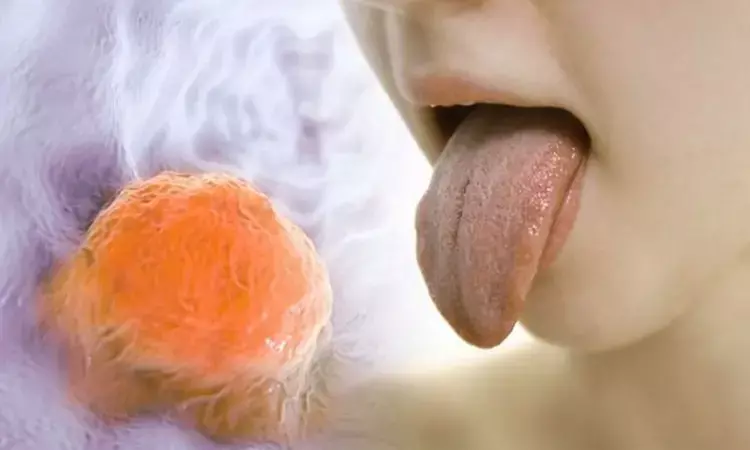- Home
- Medical news & Guidelines
- Anesthesiology
- Cardiology and CTVS
- Critical Care
- Dentistry
- Dermatology
- Diabetes and Endocrinology
- ENT
- Gastroenterology
- Medicine
- Nephrology
- Neurology
- Obstretics-Gynaecology
- Oncology
- Ophthalmology
- Orthopaedics
- Pediatrics-Neonatology
- Psychiatry
- Pulmonology
- Radiology
- Surgery
- Urology
- Laboratory Medicine
- Diet
- Nursing
- Paramedical
- Physiotherapy
- Health news
- Fact Check
- Bone Health Fact Check
- Brain Health Fact Check
- Cancer Related Fact Check
- Child Care Fact Check
- Dental and oral health fact check
- Diabetes and metabolic health fact check
- Diet and Nutrition Fact Check
- Eye and ENT Care Fact Check
- Fitness fact check
- Gut health fact check
- Heart health fact check
- Kidney health fact check
- Medical education fact check
- Men's health fact check
- Respiratory fact check
- Skin and hair care fact check
- Vaccine and Immunization fact check
- Women's health fact check
- AYUSH
- State News
- Andaman and Nicobar Islands
- Andhra Pradesh
- Arunachal Pradesh
- Assam
- Bihar
- Chandigarh
- Chattisgarh
- Dadra and Nagar Haveli
- Daman and Diu
- Delhi
- Goa
- Gujarat
- Haryana
- Himachal Pradesh
- Jammu & Kashmir
- Jharkhand
- Karnataka
- Kerala
- Ladakh
- Lakshadweep
- Madhya Pradesh
- Maharashtra
- Manipur
- Meghalaya
- Mizoram
- Nagaland
- Odisha
- Puducherry
- Punjab
- Rajasthan
- Sikkim
- Tamil Nadu
- Telangana
- Tripura
- Uttar Pradesh
- Uttrakhand
- West Bengal
- Medical Education
- Industry
Indian scientists pave way for developing new therapy for tongue cancer

Delhi: A new therapy for tongue cancer could be in the offing, with a team of scientists at the Department of Biotechnology's Hyderabad-based Centre for DNA Fingerprinting and Diagnostics coming out with a new insight into the mechanism by which an anti-cancer protein helps in the development of cancer when it mutates.
Human cells carry a protein called p53. It is very helpful as it controls several fundamental processes including cell division and repair of damaged DNA. It functions by binding directly to DNA leading to the production of proteins needed for regular cellular functions as well as effectively blocking cancer development.
However, its ability to prevent cancer is significantly compromised, if it mutates. More importantly, recent studies have reported that some specific and common mutated p53 forms even activate cancer growth.
In a new study, scientists at CDFD have identified rare p53 mutant forms unique to Indian tongue cancer and the likely means by which these mutant p53 cause cancer. For this, they collected tongue cancer samples from post-surgery patients and screened them for modifications in a gene called TP53. The gene is a sequence of nucleotides (building blocks) in the DNA that code for the production of the p53 protein.
Further, by using state of the art technologies, they identified target genes of the mutant p53 protein. Of these, a gene called SMARCD1 was the most prominent. SMARCD1 encodes a protein that along with several other proteins constitutes a multi-protein complex involved in changing the structure of DNA enabling the production of proteins from genes. Surprisingly, the scientists found that SMARCD1 was an exclusive target of mutations observed in Indian tongue cancer patients. Further studies showed the ability of SMARCD1 to increase cancerous features in tongue cancer cells.
Notably, this is the first time that SMARCD1 has been shown to be a possible driver of any form of cancer. The leader of the study team, Dr M.D. Bashyam of the Laboratory of Molecular Oncology at the Centre said, "The observations made in this study assume significance since they reveal a new and probable mechanism by which mutant p53 proteins encourage cancer development. The results of the study can be employed to develop therapies to treat tongue cancer, a common debilitating cancer in India".
Medical Dialogues Bureau consists of a team of passionate medical/scientific writers, led by doctors and healthcare researchers. Our team efforts to bring you updated and timely news about the important happenings of the medical and healthcare sector. Our editorial team can be reached at editorial@medicaldialogues.in.
Dr Kamal Kant Kohli-MBBS, DTCD- a chest specialist with more than 30 years of practice and a flair for writing clinical articles, Dr Kamal Kant Kohli joined Medical Dialogues as a Chief Editor of Medical News. Besides writing articles, as an editor, he proofreads and verifies all the medical content published on Medical Dialogues including those coming from journals, studies,medical conferences,guidelines etc. Email: drkohli@medicaldialogues.in. Contact no. 011-43720751


